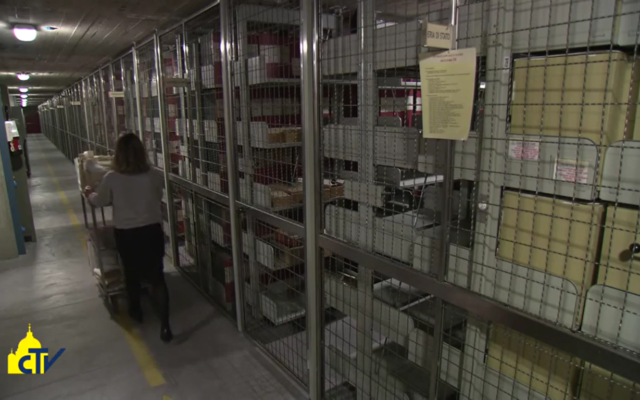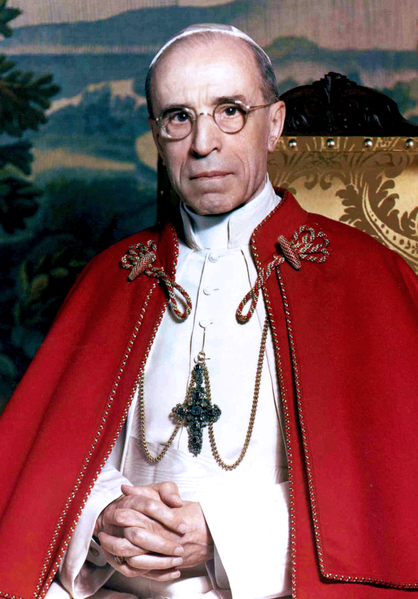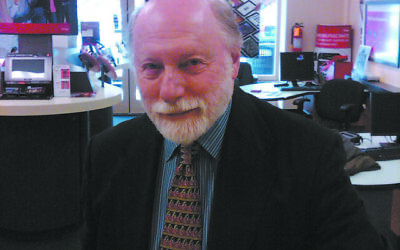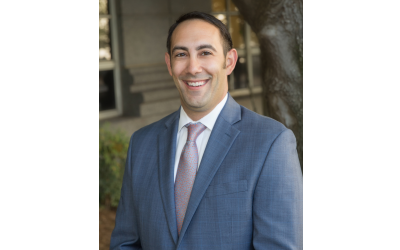Vatican Opens Pius XII Papers. Now We Wait
Local experts weigh in on the newly opened Vatican archives.
Dave Schechter is a veteran journalist whose career includes writing and producing reports from Israel and elsewhere in the Middle East.

Now that the Vatican has opened its archive, we may learn, some 80 years later, what Pope Pius XII did, or did not do; said, and did not say; and thought, or did not think, during the Holocaust.
Just not right away.
Beginning March 2, the Vatican allowed scholars to examine what may be millions of pieces of paper, written in a variety of languages, from Pius XII’s papacy, which began in 1939 following the death of Pope Pius XI, and ended with his own death in 1958.
Pius XII’s relative silence during the Holocaust has been criticized by some as a failure to use his moral position to aid Europe’s Jews and explained by others as an attempt to shield the Vatican and church operations from the Nazis.
A retired rabbi now living in Atlanta, who has invested some two decades in contact with the hierarchy of the Catholic Church, cautions not to hold your breath waiting for revelation of a so-called “smoking gun.”
“I don’t think there’s going to be a major document that will be discovered, that will answer the question everyone is asking: One, what did he (Pius XII) actually do during this entire period? Two, could he have done more? Why didn’t he do more? What influence did he think he had, and what positive steps was he able to effectuate behind the scene,” said Rabbi Jeffrey Wohlberg, who retired in 2008 after 23 years as senior rabbi of Adas Israel Congregation, a Conservative congregation in Washington, D.C.

For two decades Wohlberg has represented the Conservative movement’s Rabbinical Assembly on the International Jewish Committee on Interreligious Consultations, an international group of rabbis and lay leaders formed in 1967 when the Vatican asked that Jewish groups interested in dialogue with the Catholic church create a single representative body.
In 1965, Pope Paul VI issued the document known as Nostra Aetate, Latin for “in our time,” in which the Catholic Church repudiated the charge of “deicide” against the Jewish people in the death of Christ and declared that anti-Semitism had no place in church doctrine.
The members of IJCIC meet annually with either those holding the highest offices in the Catholic Church, or their representatives, one year organizationally and the next in dialogue on a selected theological theme. (Last year was on the rise of anti-Semitism and the rise of anti-Catholicism.) Two decades of experience in such conversations underpins Wohlberg’s perspective on the opening of the archive.
“Different people will come up with different documents. The documents are going to be an entree into the discussion, but not provide definitive answers. I don’t think we’ll find a clear answer to any questions. I think we’ll find indications that provide us some insight and some direction, but many documents will be ambiguous and I doubt that we will find anything of substance, certainly not immediately, that will give clear and definitive answers that will be satisfactory, especially to the critics,” Wohlberg said.

The documents that scholars will review “essentially are anything that they have in their archives that he (Pius XII) produced, that he wrote, that he authored personally or had the church produce, his personal files, anything that was written to him by any of his ambassadors, cardinals throughout the world, or that came to the Vatican,” Wohlberg said.
March 2 marked the 80th anniversary of Cardinal Eugenio Pacelli’s election to the papacy, for which he chose the name Pius XII. When Pope Francis announced in March 2014 that the archive related to Pope Pius XII would be opened, he said, “The church is not afraid of history.”
Dov Wilker, director of the AJC’s Atlanta regional office, said, “As we saw recently at the Atlanta Jewish Film Festival’s screening of ‘Holy Silence’ there is a lot to learn through the archives. This shows that the relationship between the Catholic and Jewish communities is strong and will create further opportunities for learning between our communities.”
Wohlberg said that the decades during which scholars and activists sought access to Pius XII’s papers should be viewed in the context of 2,000 years of often- strained relations between the church and the Jewish world.
“The Catholic Church is a very complex institution, religiously and politically,” he said. “It does not change quickly, and it is very cautious for all kinds of reasons, internal as well as external.
“What we have seen in our life, in my time, has been nothing short of

extraordinary, from before Nostra Aetate until now,” Wohlberg said. “We’ve had relations with extraordinary popes who have done extraordinary things, starting with John XXIII before Nostra Aetate and until today with Pope Francis. We’ve gone from being a hated adversary to being called ‘our brother, our friend,” from a time when anti-Semitism was perhaps part of what was being fostered by the Catholic Church to a time now when the leaders of the church have asked for the forgiveness of the Jewish people.
“The relationship between the Catholic Church and the Jewish people has not been better in 2,000 years than it is right now. We have a very strong, positive relationship, fostered in part by ongoing dialogue with the church hierarchy,” Wohlberg said.
Dialogue between the Catholic Church and the Jewish community is a two-way street, he said. “What we give, what we express is appreciation for the transformations within the church, the recognitions of our concerns and our pain, the willingness to speak to us and with us in a positive, brotherly, compassionate way and to acknowledge the importance of this dialogue and this relationship,” Wohlberg said.



comments